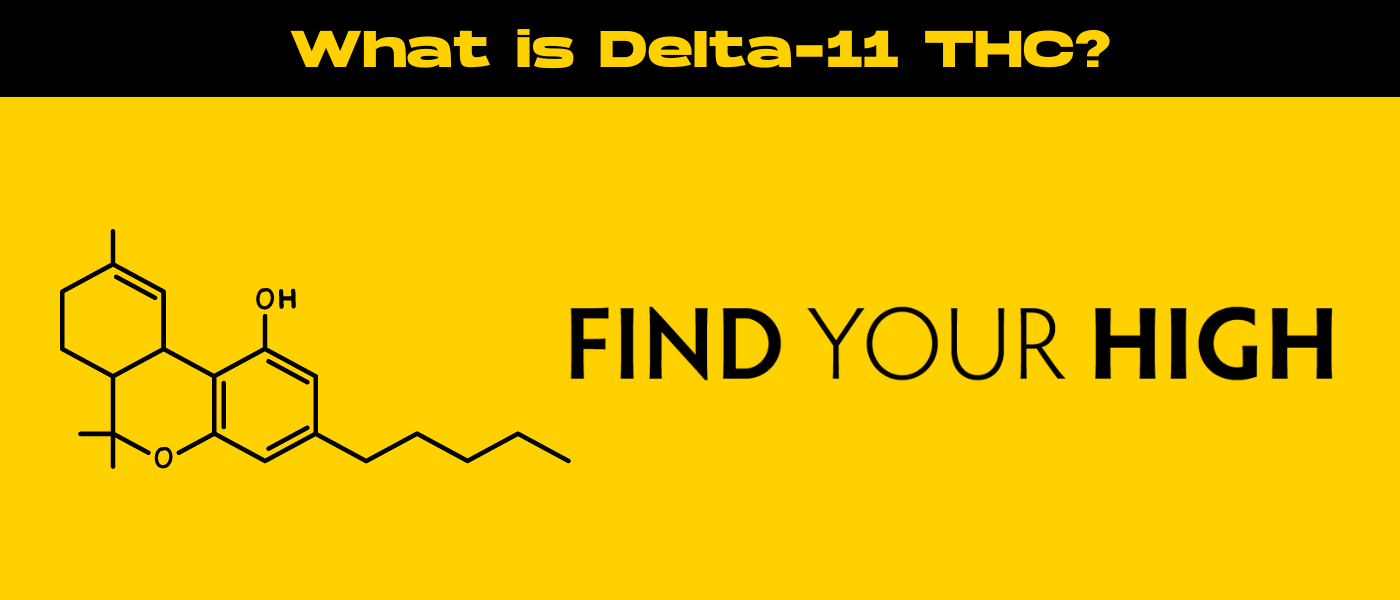In the fast-moving industry of cannabis science, new compounds are continually being identified and explored for their unique effects and potential benefits. Among these, cannabinoids stand out as the most significant compounds found in the cannabis plant, playing a pivotal role in its therapeutic and recreational effects.
Cannabinoids like THC and CBD have dominated the discourse for years, but as research advances, lesser-known cannabinoids are stepping into the spotlight. This leads us to our topic of discussion today… What is Delta 11?
Delta-11 is a compound that has recently received attention from scientists and smokers alike. This blog post aims to demystify Delta-11, providing a brief overview of what cannabinoids are and the emergence of Delta-11 as a compound of interest. Additionally, we’ll explore what makes Delta 11 so special, including its potential effects, legal status, and how it compares to its more famous counterparts.
Keep reading to learn more!
Understanding Cannabinoids
Cannabinoids are naturally occurring compounds found in the Cannabis sativa plant. Over 100 different cannabinoids have been identified, each with its own unique effects on the human body.
These compounds interact with the body’s endocannabinoid system (ECS), which plays a key role in regulating a wide range of physiological processes, including mood, memory, appetite, and pain sensation.
The most prominent cannabinoids are tetrahydrocannabinol (THC) and cannabidiol (CBD). THC is notorious for its psychoactive effects, responsible for the “high” associated with cannabis use. In contrast, CBD does not produce intoxication but is highly regarded for its therapeutic benefits, including anxiety relief, pain reduction, and anti-inflammatory properties.
Besides THC and CBD, other hemp-derived cannabinoids such as THCa, cannabigerol (CBG), cannabinol (CBN), and cannabichromene (CBC) are gaining attention for their potential health benefits. Each cannabinoid, including THCa, plays a unique role in the entourage effect—a theory suggesting that cannabis compounds work together synergistically to produce more significant therapeutic effects than any single compound alone.
THCa, the non-psychoactive precursor to THC, is being explored for its own potential health benefits, such as anti-inflammatory and neuroprotective properties. Alongside THCa, cannabinoids like CBG, CBN, and CBC each contribute to the entourage effect, enhancing the overall therapeutic potential of cannabis products.
This collaborative interaction between cannabinoids and terpenes suggests that combining compounds like THCa with THC, CBD, and others may offer a more comprehensive and effective approach to health and wellness than isolated cannabinoids alone.
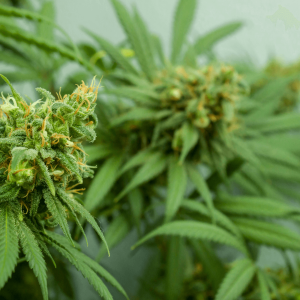
The Chemistry of Delta 11
The chemical structure of Delta-11 tetrahydrocannabinol (Delta-11 THC) shares similarities with its naturally occurring cannabinoid cousins, but it also possesses unique features that distinguish it from others.
For example, like Delta-9 THC, which is the most commonly known form of THC, Delta-11 is a psychoactive compound. However, it differs primarily in the location of its double bond within its molecular structure, which is believed to influence its potency and interaction with the body’s endocannabinoid system.
Delta 11 vs. Other Cannabinoids
- Delta 11 vs. Delta 9 THC: Delta-11 and Delta-9 THC are similar in that they both produce psychoactive effects. However, early research and anecdotal evidence suggest that Delta-11 may have a distinct pharmacological profile, with users reporting a different experience in terms of intensity and quality of the high. The precise effects and potency of Delta-11 are still under investigation, but it appears to offer a unique experience when compared to Delta-9 THC.
- Delta 11 vs. Delta 8 THC: Delta-8 THC is known for producing a milder high compared to Delta-9 THC, with reduced anxiety and paranoia in users. Delta-11, however, is speculated to exhibit a stronger effect than Delta-8, though it likely retains a more manageable psychotropic profile than Delta-9. This middle ground between Delta-8 and Delta-9 makes Delta-11 an intriguing subject for further research, particularly for individuals seeking a specific type of cannabis experience.
- Comparison with CBD: Unlike CBD, which is non-psychoactive and celebrated for its health benefits without intoxicating effects, Delta-11 is psychoactive. While CBD has received attention for its potential to alleviate pain, anxiety, and certain neurological disorders without producing a high, Delta-11’s appeal lies in its unique psychoactive properties. Nonetheless, like other cannabinoids, it may offer its own range of therapeutic benefits, further emphasizing the diverse potential of cannabis compounds beyond just CBD and THC.
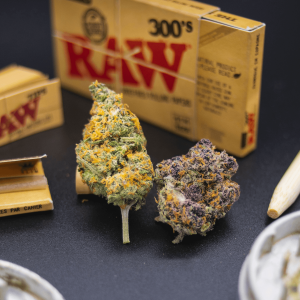
How Is Delta 11 Made?
Delta-11 THC, similar to other cannabinoids, can be made in different ways, affecting its purity, strength, and how easy it is to find.
Cannabis consumers need to know about the extraction and synthesis methods to fully understand the work that goes into making this cannabinoid.
Extraction Process
To extract Delta-11, we use similar techniques as those for other THC compounds, starting with plant material high in cannabinoids. The most common methods are CO2 extraction, ethanol extraction, and hydrocarbon extraction. These approaches separate the desired compound from the plant material and concentrate it, preparing it for further refinement and use in different products.
Synthesis from Other Compounds
Delta-11 can also be made from other cannabinoids through chemical reactions. For instance, Delta-9 THC can be chemically altered to turn into Delta-11 THC. This method makes it possible to produce Delta-11 when its natural levels in cannabis plants are too low, making it easier to use for research and by consumers.
Consumption Methods
Delta-11 THC comes in various forms, providing different experiences and effects. How you choose to consume it can change how quickly it works, how long it lasts, and how strong its effects are.
Smoking and Vaping
Smoking and vaping are the most immediate methods to experience the effects of Delta-11 THC. These methods allow for direct inhalation into the lungs, from where Delta-11 enters the bloodstream rapidly, producing effects within minutes.
Edibles and Tinctures
Edibles and tinctures offer a different experience, with onset times typically ranging from 30 minutes to 2 hours. These methods provide a more prolonged and often more potent experience, making dosage control paramount for consumers.
Topicals
Topicals are applied directly to the skin and are designed for localized relief. While they may not produce the psychoactive effects associated with other methods, they can offer therapeutic benefits, such as pain relief and reduction in inflammation.
Effects of Delta 11
The effects of Delta-11 THC vary among individuals, with factors like dosage, tolerance, and consumption methods influencing the experience.
Psychological Effects
- Enhanced sensory perception
- Euphoria
- Relaxation
- Altered time perception
- Increased creativity
Physical Effects
- Increased heart rate
- Dry mouth
- Red eyes
- Coordination challenges
- Appetite stimulation
Therapeutic Potentials
- Pain relief
- Anxiety reduction
- Insomnia management
- Neuroprotective properties
- Anti-inflammatory effects
Therapeutic Uses of Delta 11
Delta 11 THC shows a lot of promise for various medical uses, highlighting the expanding research into how cannabis can help with symptoms and offer treatment options.
Pain Relief
One of the notable benefits of Delta 11 THC is its efficacy in managing pain. Whether it’s chronic pain resulting from illnesses like arthritis or temporary pain from injuries, Delta 11 can offer significant relief. By interacting with the body’s endocannabinoid system, it can reduce pain perception and provide comfort to those affected.
Anxiety and Stress Management
The anxiolytic effects of Delta 11 are also of great interest. Many users report a pronounced sense of relaxation and ease, making it a potential aid for those grappling with anxiety and stress.
Its ability to induce a calm state without the intense high of Delta 9 THC could make it an appealing option for therapeutic use.
Potential in Treating Certain Illnesses
Preliminary research into Delta 11 suggests it may have properties beneficial in treating a range of conditions, including neurodegenerative diseases and inflammatory disorders. Its neuroprotective and anti-inflammatory effects, in particular, warrant further study to fully understand its therapeutic potential.
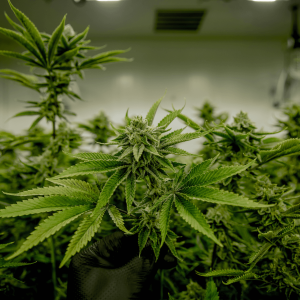
Safety and Side Effects
Known Side Effects
Like other cannabinoids, Delta 11 THC is associated with some common side effects, including dry mouth, red eyes, increased heart rate, and changes in coordination and appetite. Most of these effects are mild and temporary, but they can affect the user’s experience.
Long-term Effects (Where Research Stands)
The long-term effects of Delta 11 THC are still under investigation, with current research offering limited insights.
Ongoing studies aim to understand its impact over prolonged use, especially compared to more well-known cannabinoids. Safety remains a priority, with researchers advocating for cautious use until more definitive data becomes available.
Regulation and Quality Control
Regulating Delta 11 THC products is a growing field, mirroring the larger cannabis industry’s push for standardization and safety. Rules often include requirements for product testing, labels, and limits on Delta 11 THC levels.
A key part of these regulations is third-party lab testing. This process checks Delta 11 products for purity, potency, and safety without the manufacturer’s influence. Labs look for harmful substances like pesticides, heavy metals, and leftover solvents. They also ensure the THC content is within legal limits.
For buyers, results from independent labs mean they can trust the quality and safety of what they’re buying, leading to better choices.
How to Use Delta 11 Safely
Knowing how to use Delta 11 safely is essential to ensuring a positive and beneficial experience. Here are some guidelines:
- Dosage guidance: Start with a low dose, especially if you are new to Delta 11 THC or cannabis products in general. Gradually increase the dosage as needed to achieve the desired effects without overindulgence. Pay attention to the product’s THC concentration and consult dosage recommendations provided by manufacturers or health professionals.
- Avoiding contraindications: It’s important to be aware of any potential contraindications between Delta 11 THC and health conditions or medications. Individuals with a history of mental health disorders, pregnant or breastfeeding women, and those taking medication that interacts with THC should exercise caution. Consulting with a healthcare provider before using Delta 11 products can help avoid adverse effects and ensure compatibility with your health status.
The Legal Status of Delta 11
Federal Law and Delta 11
The legal status of Delta 11 THC is tricky and continues to change, mainly because of the 2018 Farm Bill. This bill made cannabinoids, extracts, and derivatives federally legal as long as they come from hemp and have a delta-9 THC level of 0.3% or less.
However, it didn’t specifically mention the naturally occurring compound Delta 11, making its legal status a bit unclear at the federal level. So, whether Delta 11 is legal often comes down to if it’s a hemp-derived cannabinoid and meets the delta-9 THC limit.
Variation in State Laws
At the state level, the legal status of Delta 11 THC can vary significantly. Some states have explicitly legalized the sale and use of all hemp-derived cannabinoids, including Delta 11, following the federal guidelines.
In contrast, others have taken a more restrictive approach by either specifically banning Delta 11 or by regulating all tetrahydrocannabinols regardless of their source. This patchwork of regulations creates a confusing landscape for consumers and businesses alike, making it essential to be informed about the specific laws in one’s state or local jurisdiction before purchasing or using Delta 11 THC products.
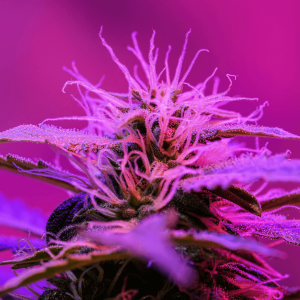
Conclusion
In summary, Delta 11 THC is a cannabinoid that shows great promise for treating pain, reducing anxiety, and possibly helping with diseases like neurodegenerative and inflammatory conditions.
Its side effects are usually mild and easy to manage, but we’re still learning about the long-term effects, so more research and careful use are necessary.
The rules around Delta 11 THC are complicated and changing, with a mix of laws at the federal and state levels that show how tricky it can be to regulate cannabinoids.
Looking forward, the future of Delta 11 THC hinges on further scientific discoveries, advancements in regulation and quality control, and the evolving legal framework. Continued research will be pivotal in unlocking its full therapeutic potential and understanding its long-term safety profile.
Regulations will need to adapt to ensure consumer safety while supporting innovation and access to beneficial products. With these efforts, Delta 11 THC holds the promise of becoming a valuable addition to the therapeutic arsenal, with the potential to enhance the well-being of individuals seeking relief from various conditions.
Frequently Asked Questions About Delta 11
1. What does delta 11 do?
Delta 11 THC, similar to other cannabinoids, interacts with the body’s endocannabinoid system, affecting mood, pain perception, appetite, and memory. It is studied for its potential therapeutic effects, including pain relief, anxiety reduction, and neuroprotection.
2. Is delta 11 stronger than Delta 9?
The potency of Delta 11 compared to Delta 9 THC varies based on individual biochemistry and the product’s formulation. Anecdotally, some users report stronger effects with Delta 11, but scientific research is still needed to fully understand its potency relative to Delta 9.
3. Will delta 11 get me high?
Yes, Delta 11 THC has psychoactive properties and can produce a high. The intensity and nature of the experience depend on several factors, including the dosage, the user’s tolerance level, and the method of consumption.
4. Is delta 11 or 8 stronger?
Delta 11 THC is often reported to be more potent than Delta 8, providing a stronger psychoactive effect. However, individual experiences can vary, and the effect also depends on the concentration and quality of the product used.
Does Delta 11 show up on drug tests?
Yes, Delta 11 THC can show up on drug tests, primarily because drug tests do not differentiate between alternative forms of THC.
Most standard drug tests screen for THC metabolites. A THC metabolite is the byproduct formed when your body metabolizes THC. Since Delta 11 THC is structurally similar to Delta 9 THC, the body processes it in a similar way, producing metabolites that can trigger a positive result on a drug test.
This means that even though Delta 11 is legal in some jurisdictions, using it could still lead to a positive drug test, which is a significant consideration for those undergoing regular drug screenings for employment or other reasons.

 Rewards
Rewards




